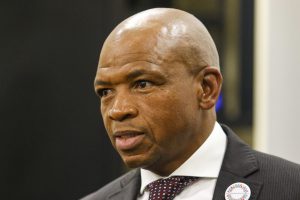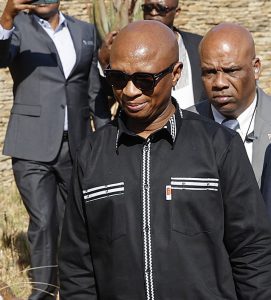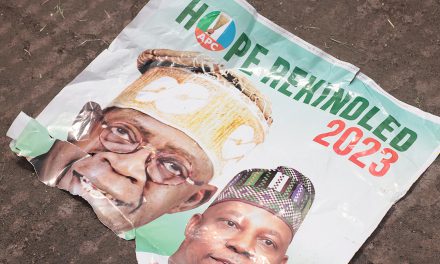Theo Barclay, a London-based barrister, wrote that “the first rule of politics is, never resign” based on the understanding that, as UK parliamentary blogger Dr Emma Peplow put it, “resigning your post in government has long been the unhappy minister’s weapon of last resort”.
In South African multiparty politics, it seems that this rule has been turned into an art form by our politicians, who refuse to resign even when there is overwhelming evidence against them.
The worst part is that our political parties have not moved speedily to ensure public accountability by their members. In our proportional representation (PR) system, the electorate cannot vote for candidates directly. We must trust that the party we choose to represent us will take governance seriously.
According to the Open Government Partnership, public accountability occurs when “rules, regulations, and mechanisms in place call upon government actors to justify their actions, act upon criticisms or requirements made of them, and accept responsibility for failure to perform with respect to laws or commitments”.
There are two imperatives for the institutionalisation of public accountability. The first is the ethical integrity and personal agency of the political leader concerned. The second is the institutional application of accountability by the political parties they belong to.
The International Institute for Democracy and Electoral Assistance (Idea) has stated that “political parties are seen as prime actors in democratic societies that have essential roles in public accountability. “In an ideal multiparty democracy, political parties are the key mechanisms that make the democratic chain of political delegation and accountability work. Political parties fulfil a vital intermediate role between citizens and the state, in which they are supposed to represent citizens’ interests and translate these into a policy agenda that responds to citizens’ concerns.
“With this interest-oriented agenda, they try to influence policymaking and decision-making processes. At the same time, they hold the government to account on behalf of citizens and society as a whole.
“By failing to hold their own members in government or parliament accountable, political parties collapse the public accountability framework and leave it up to either the alleged culprit themselves or to parliamentary and other structures to deal with it.”

Supra Mahumapelo. Photo: Adrian de Kock
In 2018, we watched in confusion as the former North West Premier and the provincial chairperson of the African National Congress, Supra Mahumapelo, struggled to tender the resignation the nation was awaiting.
Speaking in the North West provincial legislature, he said “the speaker will receive a commitment in writing before Friday this week in ensuring that we create the essence of the absence of presence… In some critical instances of our lives, we are called upon as part of humanity to create the essence of the absence of presence.”
Ethos lacking
Clearly, South African political leaders lack the strong ethos required to voluntarily resign. That is why many people were pleasantly surprised when former Minister of Sport, Arts and Culture Zizi Kodwa voluntarily resigned from his positions both in the government and the ANC when he was charged with alleged corruption. You can imagine the shock to SA’s body politic when he came back as a member of Parliament. He has since resigned again as an MP.

Zizi Kodwa. Photo: Phill Magakoe/AFP
As if Kodwa’s situation was not enough, another member of Parliament, Renaldo Gouws, this time from the Democratic Alliance, who appeared on videos spewing what appeared to be racist vitriol, also refused to resign. His party appeared to defend him at first, but more video evidence came to light.
He was suspended for a few short weeks and returned with even more responsibilities, chairing some parliamentary committees. The DA finally sacked him.
But these examples illustrate the fact that our societal institutions, including our political parties, appear not to have embraced institutional accountability as a cardinal principle of governance. They do not seem to appreciate their role in strengthening public accountability by their members.
Even more worrying are the signs of a lack of internal democracy and leadership, and dictatorial tendencies in some political parties. In some parties, conferences and leadership elections are not being held. In others, leadership elections are just a formality as everyone inside knows that certain leaders cannot be challenged.

Renaldo Gouws. Photo: Henk Kruger
How can these parties legitimately claim to embrace democracy and public accountability when they cannot exercise the basic tenets of internal democracy?
According to Idea, “political parties, preferably in cooperation with other actors such as civil society organisations, the media, and oversight and auditing organisations, can be involved in participatory checks and balances in implementation monitoring and evaluation of policies and public funds.
“They can facilitate political and social debate among citizens and between citizens and politicians… However, this only works when public purpose is put ahead of private gain, and laws, rules, impartiality and expertise are respected.”
This is impossible to achieve under the prevailing conditions where political parties do not appear to fully appreciate their role in entrenching public accountability within their own organisations. Thomas Carothers, director of Carnegie’s Democracy, Conflict, and Governance Program, calls them “the weakest link” in the democratisation process.
It is for these reasons that the role of political parties in public accountability must be strengthened. Political parties must include political accountability training as part of their political education programmes. They must insist that their members must resign quickly under certain circumstances such as corruption, racism, crime, violence, etc, failing which they as parties will act decisively.
Politicians must be honest enough to accept it when most of the people who voted for them no longer want them in power. If they are really servants of the people, as they want us to believe, they must not wait for people to stage mass protests and destroy property and infrastructure.
Nor should they wait for legal declarations by the courts and regulatory bodies. They must do the honourable thing and let go with their integrity intact.
When she took over the position of education minister under the UK’s Tony Blair in 1999, Estelle Morris promised to resign if numeracy and literacy targets were not achieved. When they were not, in 2002, she fell on her sword and wrote one of the most honest letters of resignation ever written.
She wrote to Blair that, “I’ve learned what I’m good at and what I’m less good at. I’m good at dealing with issues and in communicating to the teaching profession. I’m less good at strategic management of a huge department and I’m not good at dealing with modern media.”
Her candour and integrity are still refreshing and alluring in their power. Many leaders would do well to follow her example. When a personal moral code or principle has been violated, a politician has an obligation to step down.
This article first appeared in Daily Maverick.
Lonwabo Patrick Kulati is the Chief Executive Officer of Good Governance Africa’s (GGA) Southern Africa Regional Office (SARO). He has a strong history of leading international NGOs and driving organisational growth, effectiveness and profitability. He also has expertise in strategy development and execution, leadership coaching, fund development, stakeholder management, advocacy and partnership cultivation. Patrick is also a published author of "A Gap in the Cloud," providing valuable insights and inspiration on personal and leadership resilience. He holds a Master’s degree in Public Administration from the University of Stellenbosch.













